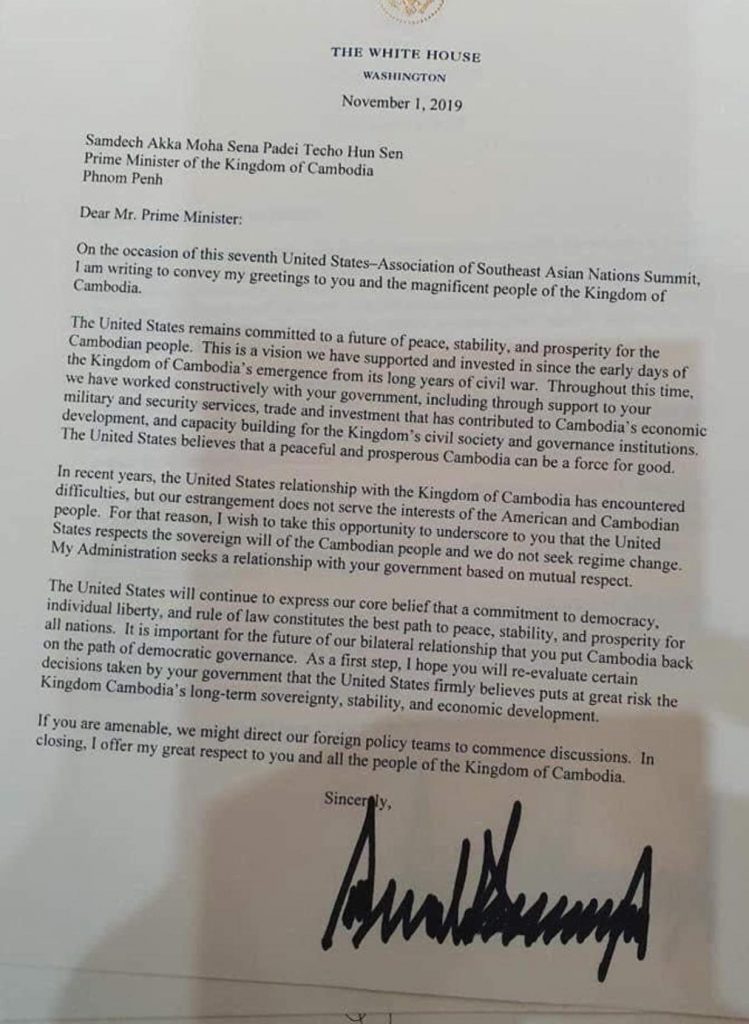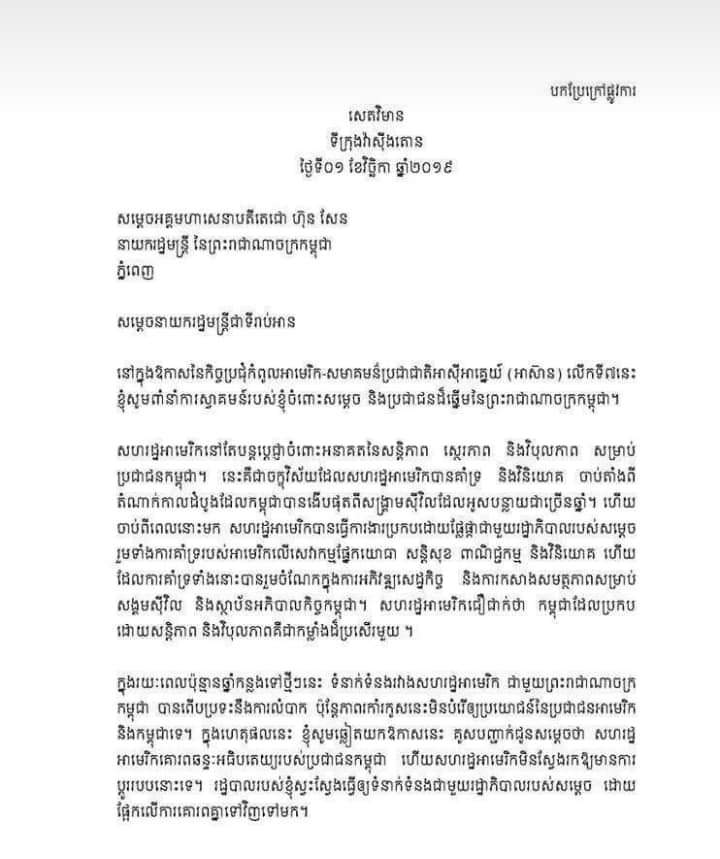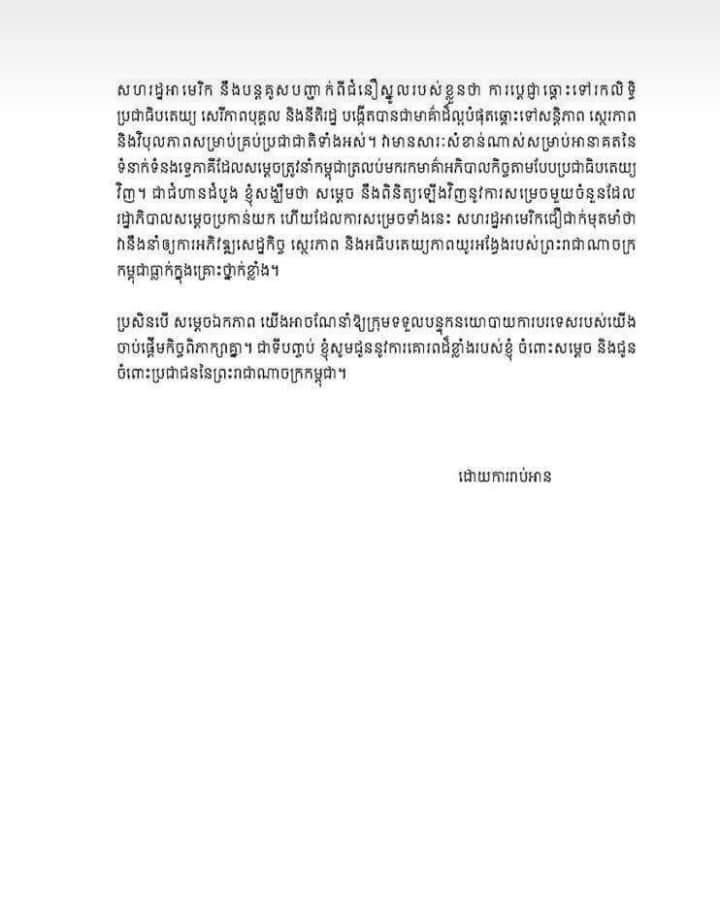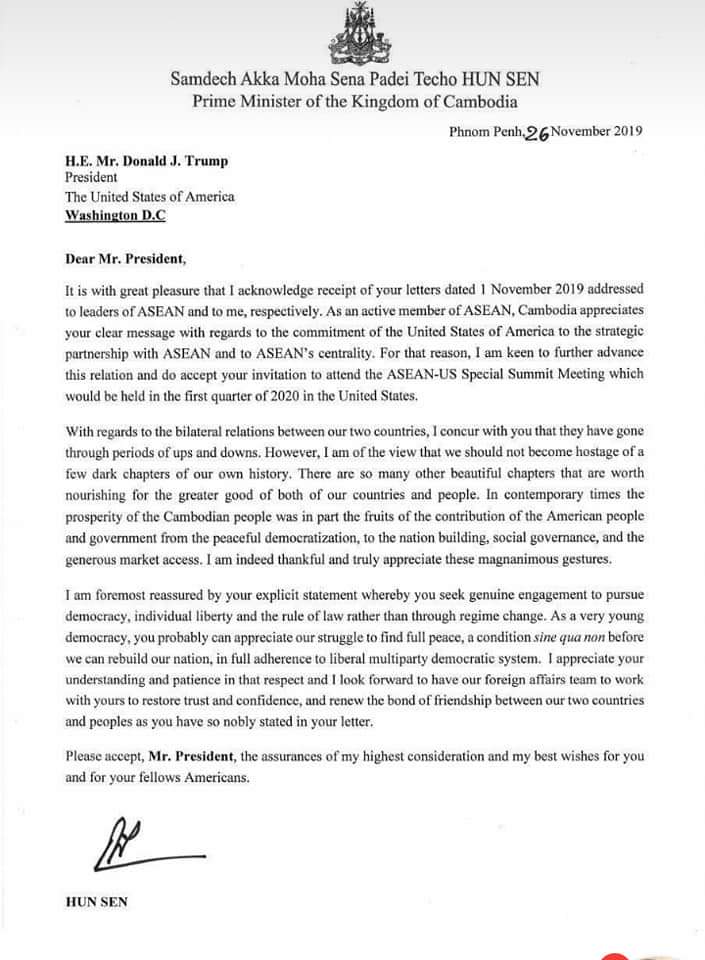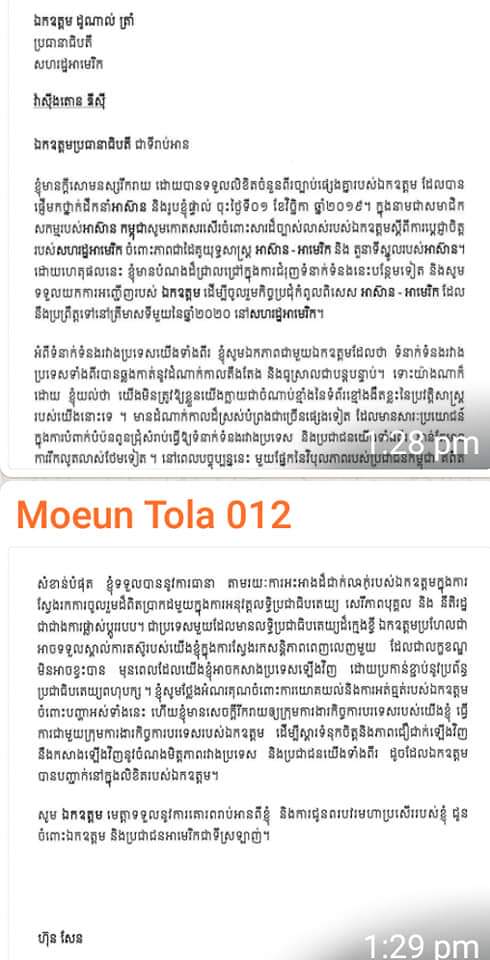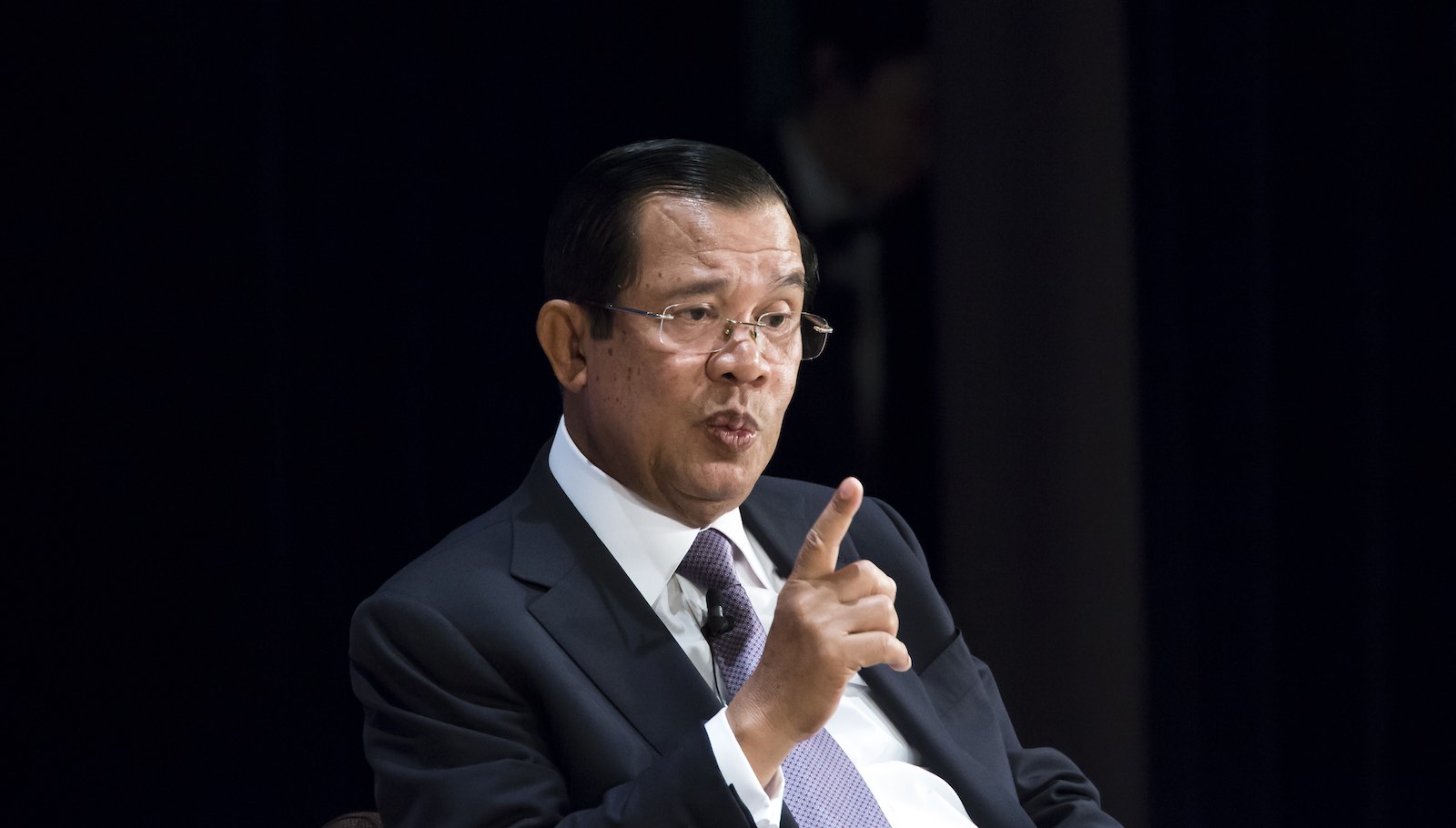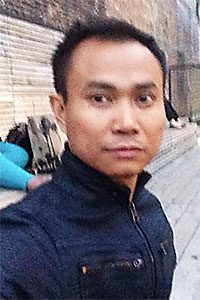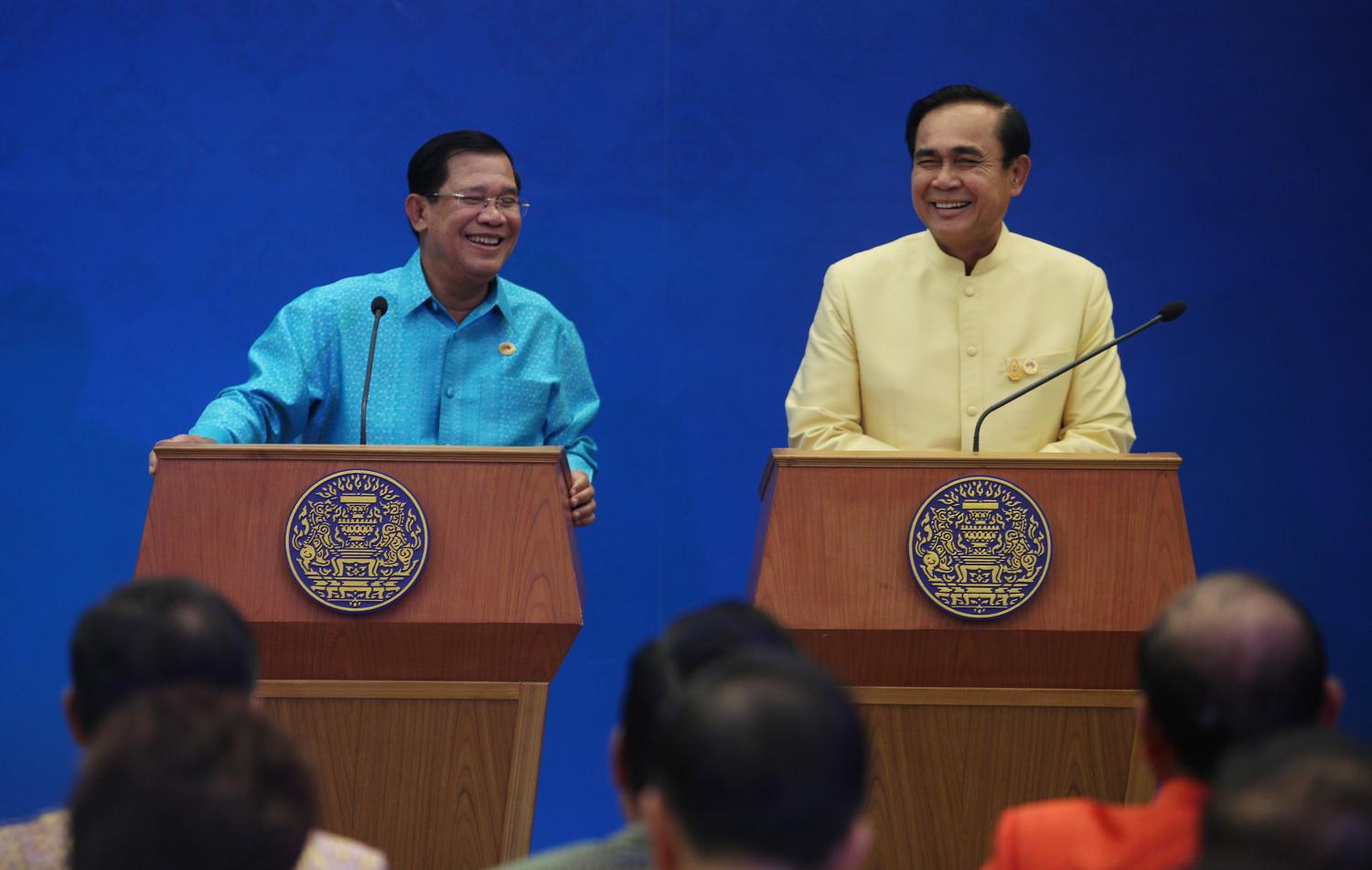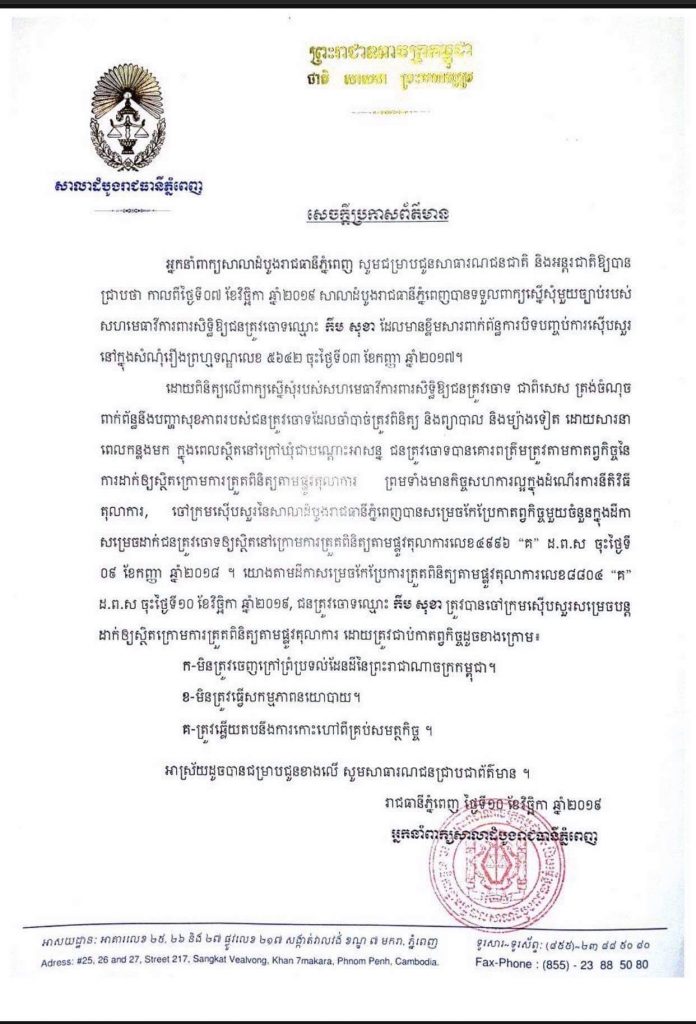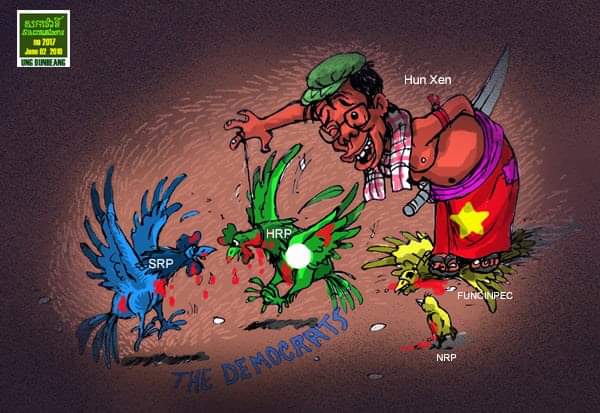Hun Sen Responds to Trump Letter, Ignores Call for Course Correction
28 November 2019
- Kann Vicheika
- VOA Khmer
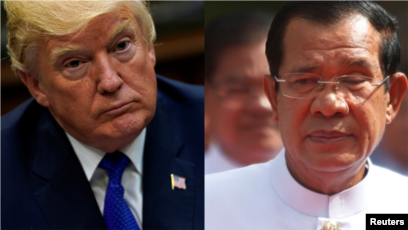
Hun Sen’s letter called for the creation of a working group with member from both countries, with the aim of discussing ways to improve bilateral relations.PHNOM PENH —
Prime Minister Hun Sen on Wednesday responded to a letter sent by President Donald Trump last week by saying he was keen to improve bilateral relations and hoped to move past the “dark chapters” of their shared history.
The prime minister wrote his own letter, dated November 26, 2019, in response to a letter sent by President Trump and delivered by U.S. Ambassador W Patrick Murphy last week. In that letter, Trump said the U.S. was looking to restore bilateral relations and was not pushing for a regime change.
Hun Sen said he agreed with Trump that their bilateral relations had been through “ups and downs” and that the two countries should not be held back by their past issues.
“I am of the view that we should not become hostage of a few dark chapters of our own history,” Hun Sen writes in the letter. “There are so many other beautiful chapters that are worth nourishing for the greater good of both of our countries and people.”
The Cambodian government has routinely accused the United States of orchestrating an alleged color revolution to overthrow the government. It used this so-called revolution narrative to dissolve the opposition party in 2017, jail opposition leader Kem Sokha, and crackdown on NGOs and independent media organizations.
Hun Sen’s letter called for the creation of a working group with member from both countries, with the aim of discussing ways to improve bilateral relations.
Continue reading
